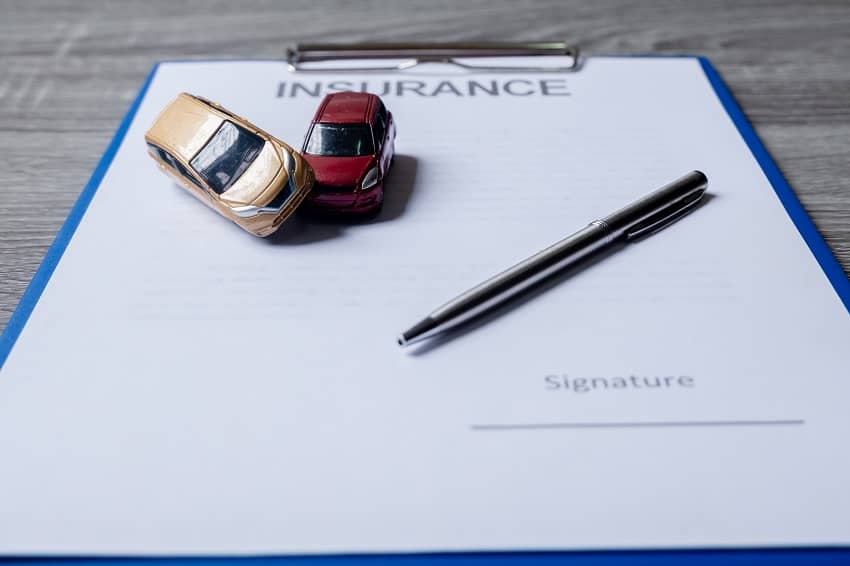Full coverage car insurance provides complete protection for your vehicle, including liability, collision, and comprehensive coverage. When driving on the road, accidents can happen at any time, no matter how careful you are.
Full coverage car insurance is a comprehensive plan that offers insurance against various risks that may cause damage to your car. It includes liability coverage, which covers bodily injury and property damage of other drivers, collision coverage, which pays for the repairs or replacement of your car after a collision, and comprehensive coverage, which provides compensation for damages caused by theft, vandalism, and natural disasters.
It also covers medical expenses and loss of income due to injuries sustained in an accident. Full coverage car insurance provides peace of mind and financial protection when driving on the road. So, it is always advisable to buy full coverage insurance to ensure proper protection of your vehicle.
Table of Contents
The Basics Of Full Coverage Car Insurance
Full Coverage Car Insurance: Protect Your Investment Today!
Are you a concerned car owner who wants to protect your investment? Then you should consider getting a full coverage car insurance policy. Full coverage car insurance is a type of insurance policy that provides an extensive range of coverage for your car.
We will be discussing the basics of full coverage car insurance, including liability coverage, collision coverage, comprehensive coverage, and uninsured/underinsured motorist coverage.
Liability Coverage
Liability coverage is a critical aspect of your full coverage car insurance policy because it covers the damage you cause to other people and their property in the event of an accident. This type of coverage is required in most states because it protects others from financial loss resulting from an accident that you caused.
A standard liability policy will cover:
- Bodily injury liability: Covers medical expenses and lost wages resulting from injuries to the other party.
- Property damage liability: Helps compensate the other party for damage to their property, such as their car or home.
Collision Coverage
Collision coverage helps cover the costs of repairing or replacing your car in the event of an accident, regardless of who is at fault. This coverage typically includes collision with another car, collision with a stationary object, or single-car accidents.
This type of coverage is essential for newer or more valuable cars.
- Inclusions: Coverage for the cost of repairing or replacing your car and any personal property damaged in the accident.
- Exclusions: Damage to your car resulting from theft, flooding, or other non-collision events.
Comprehensive Coverage
Comprehensive coverage is an optional policy that provides you with peace of mind by providing protection against damages not caused by a collision, such as theft, vandalism, natural disasters, and animal encounters.
- Inclusions: Repair or replacement of your car in the event of theft or damage due to non-collision events.
- Exclusions: Damage to your car resulting from a collision or intentional harm.
Uninsured/Underinsured Motorist Coverage
If you are involved in an accident caused by someone else who doesn’t have sufficient insurance, uninsured/underinsured motorist coverage will help cover the costs of damages and injuries. This coverage typically includes uninsured motorist bodily injury and uninsured motorist property damage.
- Inclusions: Coverage for damages and injuries sustained due to an accident caused by an uninsured or underinsured motorist.
- Exclusions: Coverage limitations vary by state and insurance carrier.
Full coverage car insurance can provide significant protection for your investment in your car. Liability coverage is required in most states, but collision coverage, comprehensive coverage, and uninsured/underinsured motorist coverage are optional add-ons that can provide you with critical protection in the event of an accident.
Make sure you choose the right policy for your needs by carefully considering your risks and coverage needs.
How Much Full Coverage Car Insurance Do You Need?
Full Coverage Car Insurance: Protect Your Investment Today!
Your car is one of your most valuable investments, so it’s natural to want to protect it from any unforeseen damages. And that’s where insurance comes in. While standard car insurance typically covers damages and injuries you cause to others, full coverage car insurance provides more comprehensive coverage that includes damages to your own car as well.
But how much full coverage car insurance do you need? Let’s dive into the factors to consider when deciding on coverage levels and some examples based on typical drivers and cars.
Factors To Consider When Deciding On Coverage Levels
Deciding on the right coverage level for your full coverage car insurance can be challenging, but considering the following factors can make the process easier:
- Your car’s value
- Your driving record
- Your financial situation
- The likelihood of an accident in your area
- The amount of assets you have to protect
Based on these factors, you can decide on a coverage level that suits your needs. For example, if you have a brand new car, it’s wise to opt for a higher coverage level. On the other hand, if you have an older car, you might consider a lower coverage level to save on premiums.
Examples Of Coverage Levels Based On Typical Drivers And Cars
To give you an idea of what coverage levels may be suitable for different drivers and cars, here are some examples:
- A driver with a new car and a clean driving record might consider a $100,000/$300,000 liability limit, $50,000 in property damage coverage, and a $500 or $1,000 deductible for collision and comprehensive coverage.
- A driver with an older car and a good driving record might consider a $50,000/$100,000 liability limit, $25,000 in property damage coverage, and a higher $1,000 deductible to save on premiums.
- A driver with a high net worth and expensive assets to protect might consider higher coverage limits, such as $250,000/$500,000, along with umbrella insurance for additional protection.
Remember, the right coverage level for you depends on your unique circumstances. Consider your financial situation, driving record, and assets before deciding on your full coverage car insurance level.
Full coverage car insurance can provide peace of mind by protecting your investment in case of any damages. By considering the factors mentioned above and looking at some examples, you can make an informed decision on the right coverage level for you.
Choosing The Right Insurance Company
Full Coverage Car Insurance: Protect Your Investment Today!
As a car owner, it is crucial to have full coverage car insurance to safeguard your investment in case of an accident, theft or damage. However, choosing the right insurance company that meets your needs and budget can be a daunting task.
We will discuss the top-rated insurance companies for full coverage policies, the factors to consider when selecting an insurance company and the discounts and incentives available for full coverage policies.
Top-Rated Insurance Companies For Full Coverage
When it comes to selecting an insurance company, it is essential to choose one that has a good reputation, excellent customer service, and affordable premiums. Here are the top-rated insurance companies for full coverage policies:
- State farm: This insurance company offers comprehensive and collision coverage, personal injury protection (pip), uninsured/underinsured motorist coverage, and roadside assistance. It has an a++ rating from am best, making it one of the most reliable and trustworthy insurance companies in the market.
- Geico: Known for its affordability, geico offers a variety of full coverage policies suitable for every budget. Its policies include liability coverage, collision, and comprehensive coverage, and medical payments coverage. Geico has an a++ rating from am best.
- Allstate: This insurance company offers standard full coverage policies, with additional optional coverage, such as sound system insurance and personal umbrella coverage. Allstate has an a+ rating from am best and provides excellent customer service.
- Progressive: Progressive offers a unique full coverage insurance policy called “full coverage by progressive,” which includes liability, collision, and comprehensive coverage, rental reimbursement, and custom parts replacement. It also offers discounts for bundling policies and safe driving habits. Progressive has an a+ rating from am best.
Factors To Consider When Selecting An Insurance Company
Before selecting an insurance company for your full coverage policy, here are some essential factors to consider:
- Type of coverage: Investigate the types of coverage that the insurance company offers. Ensure the company covers the specific coverage you need for your vehicle.
- Customer service: Choose an insurance company that provides excellent customer service. They should be prompt in responding to your queries and claims.
- Financial stability: Ensure that the insurance company you choose is financially stable and secure.
- Premiums: Compare the rates of different insurance companies before settling on one. Always choose a company that provides affordable premiums that won’t break the bank.
- Discounts: Look for insurance companies that offer discounts, such as good driver discounts, low mileage discounts, and multi-policy discounts.
Discounts And Incentives For Full Coverage Policies
Full coverage policies are expensive, but insurance companies offer discounts and incentives to attract customers. Here are some discounts and incentives for full coverage policies:
- Multi-policy discount: If you have more than one insurance policy with an insurance company, you may qualify for a multi-policy discount.
- Safe driver discount: Some insurance companies offer safe driver discounts, which means that if you have a positive driving history, you may qualify for a discount.
- Anti-theft discount: Installing anti-theft devices in your vehicle can make you eligible for a discount.
- Good student discount: If you are a student with good grades, you may qualify for a discount.
The right insurance company can make all the difference in protecting your investment. Choose an insurance company with a good reputation, excellent customer service, and affordable rates. Consider the factors stated when choosing an insurance company for your full coverage policy.
Take advantage of the discounts and incentives offered to get the best possible deal.
The Cost Of Full Coverage Car Insurance
Full Coverage Car Insurance: Protect Your Investment Today!
Are you looking for the right car insurance to protect your investment without breaking the bank? Look no further than full coverage car insurance. While it may seem costly, it can save you thousands in the long run. Here are some factors that determine the cost of full coverage car insurance, and ways to reduce the cost without sacrificing protection.
Factors That Determine The Cost:
- Age and driving record: Younger drivers and those with a history of accidents and traffic violations may pay higher premiums.
- Type of car: More expensive or high-performance vehicles may cost more to insure.
- Location: Drivers in urban areas or with higher rates of accidents and theft may pay more.
- Deductible: Choosing a higher deductible may lower your premium.
- Coverage limits: Higher coverage limits may increase your premium.
Ways To Reduce The Cost Of Full Coverage Without Sacrificing Protection:
- Increase your deductible: Choosing a higher deductible can reduce your premium but be sure you can afford the deductible amount if you need to file a claim.
- Bundle policies: Many insurance companies offer discounts for bundling auto, home, and other policies together.
- Maintain good credit: Insurers often use credit scores to determine rates, so maintaining good credit may help lower your premium.
- Install safety features: Vehicles with added safety features like anti-theft systems, rearview cameras, or collision avoidance systems may qualify for discounts.
- Drive safely: Keeping a clean driving record can lead to lower insurance rates over time.
- Shop around: Compare rates from different insurance companies to find the best coverage at the most affordable price.
Overall, the cost of full coverage car insurance can vary depending on the driver, vehicle, and coverage options. However, there are ways to reduce the cost without sacrificing protection. By considering these factors and tips, you can find the right policy to protect your investment on the road.
Frequently Asked Questions Of Full Coverage Car Insurance
What Does Full Coverage Car Insurance Cover?
Full coverage car insurance includes liability, collision, and comprehensive coverage. It covers damage done to other people’s cars and property and your car in an accident. It also covers non-collision damage like theft, vandalism, fire, and weather-related hazards.
How Much Does Full Coverage Car Insurance Cost?
The cost of full coverage car insurance can vary depending on a range of factors, including your age, driving record, location, and the make and model of your car. On average, the cost of full coverage car insurance can range from $1000 to $2000 per year.
Is Full Coverage Car Insurance Worth It?
Full coverage car insurance is worth it if you want to protect your car from all types of accidents, theft, and other damages. It can be more expensive than basic coverage, but it can also save you money in the long run by covering expensive repairs and medical costs.
How Much Liability Coverage Should I Have?
The amount of liability coverage you need depends on the state you live in. Most states require drivers to have at least $25,000 in liability coverage for property damage and $50,000 for bodily injury per person and $100,000 for bodily injury per accident.
What Is Collision Coverage?
Collision coverage is a type of insurance that covers the cost of repairing or replacing your car if it is damaged in an accident, regardless of who is at fault. It can also cover damages caused by hitting an object or overturning your car.
Conclusion
Overall, full coverage car insurance can provide peace of mind for drivers. By combining liability, collision, and comprehensive coverage, drivers can protect themselves and their vehicles from a variety of potential risks. However, it is important to remember that the cost of full coverage insurance can be higher than other options, and drivers should shop around to find the best rates.
Additionally, drivers should review their policy regularly to ensure that they have the appropriate coverage and limits for their needs. By being informed and proactive, drivers can make the best decision when it comes to their car insurance. So, whether you’re a new driver or a seasoned pro, full coverage car insurance is certainly worth considering for your protection on and off the road.





